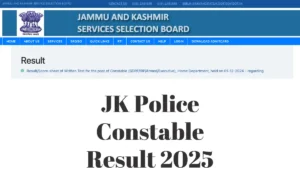Table of Contents
What is Uniform Civil Code?
The Uniform Civil Code (UCC) in India refers to the idea of replacing personal laws based on religious customs and traditions with a common set of civil laws applicable to all citizens, irrespective of their religion. The goal of India’s Uniform Civil Code is to create and enforce personal rules that apply to all citizens equally regardless of their gender, sexual orientation, or religion. The concept of a Uniform Civil Code is associated with secularism and equality before the law. In short, Uniform Civil Code means having a common law for all citizens of the country which is not biased on religion.
Latest Updates- On 14th June 2023, by seeking opinions on the politically delicate topic from stakeholders, such as the general public and recognised religious institutions, the Law Commission started a new consultation process on the Uniform Civil Code in India.
UCC Full Form
The full form of UCC is “Uniform Civil Code.” It refers to the idea that all citizens of a country must abide by the same set of civil rules, regardless of their personal beliefs, cultural heritage, or religion.
Uniform Civil Code in India
In Indian Constitution, the ‘Uniform Civil Code’ is mentioned in Article 44 (Part 4) which depicts “The State shall endeavour to secure for the citizens a uniform civil code throughout the territory of India.” However, the adoption of a uniform civil code in India has long been the subject of debate. Political, religious, and social factors have influenced the discourse surrounding the Uniform Civil Code (UCC), making it a complex and sensitive matter.
Uniform Civil Code in Hindi (समान नागरिक संहिता)
Uniform Civil Code in Hindi (समान नागरिक संहिता)- भारत में नागरिकों के व्यक्तिगत कानून बनाने और लागू करने का एक प्रस्ताव है जो सभी नागरिकों पर उनके धर्म, लिंग और यौन अभिविन्यास की परवाह किए बिना समान रूप से लागू होता है। समान नागरिक संहिता की धारणा भारतीय संविधान के अनुच्छेद 44 में प्रमाणित की गई है, जिसमें कहा गया है, “राज्य भारत के पूर्वभूमि के सभी क्षेत्र में नागरिकों के लिए एक समान नागरिक संहिता सुनिश्चित करने का प्रयास करेगा।” हालांकि, यूसीसी को लागू करने की कोशिशें दशकों से भारत में विवादों और विचारविमर्श का विषय रही है।
भारत में समान नागरिक संहिता (यूसीसी) एक विचार है जिसका मतलब है कि धार्मिक रीति-रिवाजों पर आधारित व्यक्तिगत कानूनों को एक सामान नागरिक कानून से बदल दिया जाए, जो सभी नागरिकों के लिए लागू हो। वर्तमान में, भारत में विविध धर्मीय समुदायों, जैसे हिन्दू, मुस्लिम, ईसाई और अन्यों के लिए विभिन्न व्यक्तिगत कानूनों द्वारा विभिन्न पहलुओं, जैसे विवाह, तलाक, वारसत और गोद-लेन आदि, का प्रबंधन किया जाता है।
Debate on Uniform Civil Code (UCC)
People in Favour of UCC says that it would promote gender equality, social justice, and national integration. They believe that having a common set of laws for all citizens would eliminate discriminatory practices and ensure equal rights and protection for women, regardless of their religious background. They also argue that a UCC would help foster a sense of unity and national identity.
On the other hand, Opponents of a UCC argue that personal laws are an integral part of religious freedom and cultural diversity in India. They claim that the implementation of a UCC would violate the rights of religious minorities and threaten their distinctive traditions. They also express concerns that a UCC might be used as a tool to impose majority community practices on minority communities.








 ISRO HSFC Result 2025, Score Card and Cu...
ISRO HSFC Result 2025, Score Card and Cu...
 JKSSSB JK Police Constable Result 2025 O...
JKSSSB JK Police Constable Result 2025 O...
 Indian Bank LBO Score Card 2025 Out, Che...
Indian Bank LBO Score Card 2025 Out, Che...
